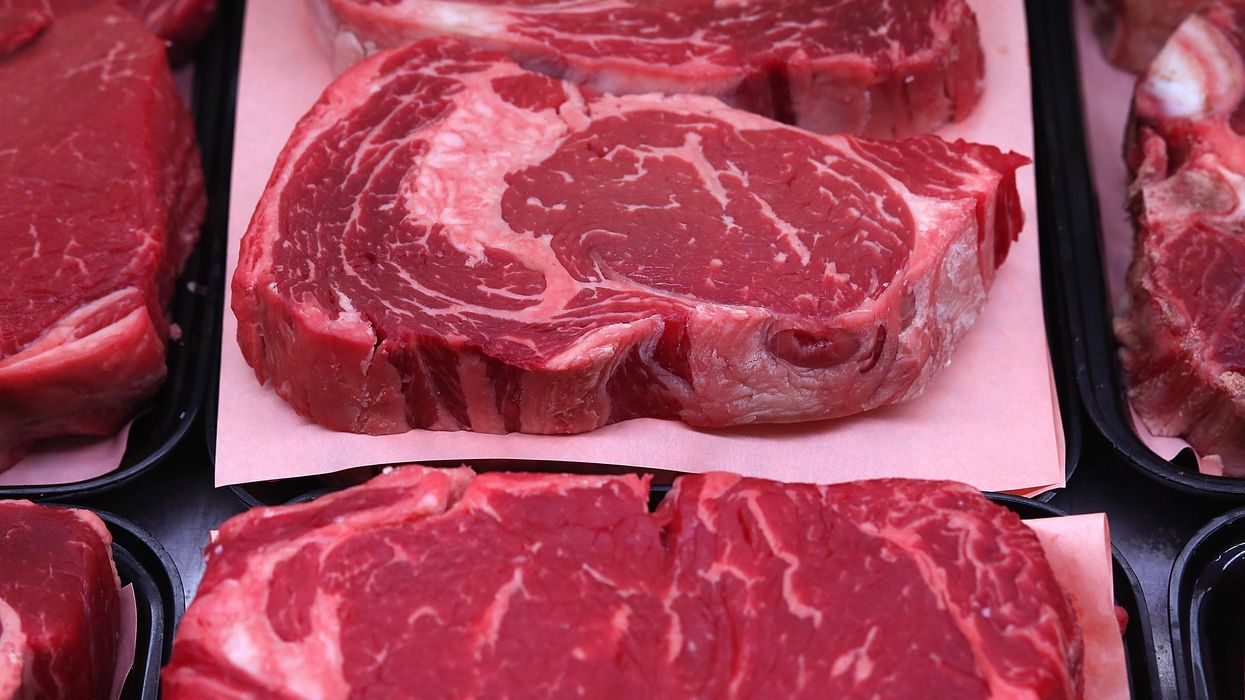
Justin Sullivan/Getty Images

A Dutch city will become the first in the world to ban most, if not all, meat advertisements from public spaces in an attempt to affect climate change.
Haarlem – which is a city about 20 miles west of Amsterdam – will outlaw meat ads starting in 2024. The law would prohibit advertisements for meat in public places in the city of 160,000 people in the Netherlands.
The law was approved by city authorities last November, but only garnered worldwide headlines this week when a member of the Haarlem government officially notified advertising agencies.
"It will be the first city in the Netherlands – and in fact, Europe and indeed the world – to ban 'bad' meat ads in public places," said Ziggy Klazes, a member of the GroenLinks (Green-Left) party that drafted the motion banning meat advertising.
Proponents of banning the ads argue that the new law will help reduce meat consumption and greenhouse gas emissions.
Klazes said, "Meat is very harmful to the environment, we cannot tell people that there’s a climate crisis and encourage them to buy products that are a part of it."
The Daily Mail reported, "The ban would target all 'cheap meat from intensive farming', Klazes said, adding, 'As far as I'm concerned that includes ads from fast food chains.'"
The city had yet to decide on whether ads for organic meat would also be banned.
Klazes said the meat ads violated the city's ethics not to "earn money by renting the city's public space to products which accelerate global warming."
Klazes hopes that the ad ban will be implemented throughout the entire country.
The law will also ban advertisements for vacation air travel, gas-powered vehicles, and fossil fuels.
The Dutch cities Amsterdam and the Hague had already banned ads for vacation air travel, gas-powered vehicles, and fossil fuels.
The ban on meat ads was criticized by many. The BVNL party called the ban an "unacceptable violation of entrepreneurial freedom."
"Banning ads for political reasons is nearly dictatorial," said Joey Rademaker, a Haarlem official for the right-wing BVNL party.
"It is remarkable that the municipality of Haarlem is holding a large poster campaign that you can be yourself in Haarlem and love whoever you want, but if you like meat instead of soft grass, 'the patronizing brigade' will come and tell you that you are completely wrong," said Sander van den Raadt, leader of the Trots Haarlem group.
Dutch meat industry advocacy group the Centrale Organisatie voor de Vleessector argued that Haarlem authorities were "going too far in telling people what's best for them."
In response to the ban, the meat industry group launched a "Netherlands Meatland" ad campaign to promote eating meat.
Approximately 95% of Dutch people eat meat – including 20% every day, according to the Dutch central statistics office.
Over the summer, Dutch farmers staged numerous protests against government climate change proposals that would hurt the farming industry.
The BBC reported in July, "Dutch government proposals for tackling nitrogen emissions indicate a radical cut in livestock – they estimate 11,200 farms will have to close and another 17,600 farmers will have to significantly reduce their livestock."
The Dutch government wants to slash the country's cow herd of four million by nearly a third, according to France 24.